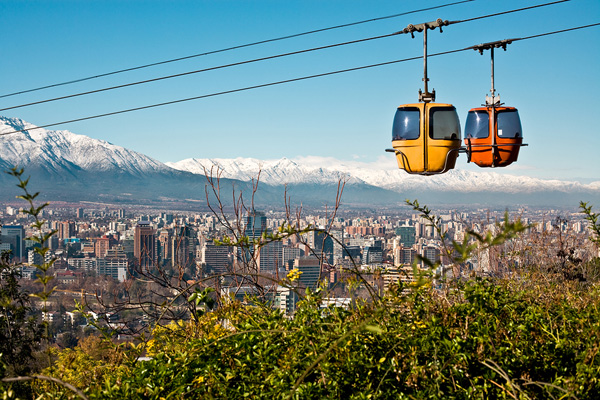Health Insurance for Expats in Chile
Summary: As you plan your move to Chile, a key decision awaits: selecting the right health insurance. Should you go with local or expat coverage? This article explores the options and includes experiences shared by expats in Chile, offering a glimpse into what might work best for you.

Chile offers a robust healthcare system that caters to both locals and expatriates. The country provides a mix of public and private health insurance options, ensuring that residents have access to quality medical care. Understanding the nuances of the Chilean health insurance landscape is crucial for expats and digital nomads planning to live in the country.
Health Insurance Companies in Chile
The most popular health insurers in Chile are part of the private system known as 'Isapres' and the public health insurance known as 'FONASA'. Expats are eligible to purchase health insurance from these companies. Among the top Isapres are Banmédica, Consalud, and Cruz Blanca, which offer various plans with different coverage levels. These companies are well-established and provide extensive healthcare networks. Expats must typically have a valid visa and a Chilean identification number (RUT) to enroll in these insurance plans.
Expat Health Insurance in Chile
Many expats living in Chile opt for specialized expat health insurance plans. These plans are tailored to the needs of foreigners, offering a wider range of coverage, including international medical treatment and repatriation. Some expats choose these plans for the peace of mind that comes with knowing they have access to healthcare services that align with their expectations and that they can receive assistance in their native language.
Local Health Insurance vs. Expat Health Insurance
Expats and digital nomads in Chile often face the decision between local health insurance plans and specialized expat health insurance. While local plans from Isapres or FONASA can be more cost-effective and provide good coverage within Chile, expat health insurance might offer broader international coverage and additional services tailored to the expat lifestyle. The choice often depends on the individual's health needs, length of stay, and whether they travel frequently or prefer the reassurance of a plan that covers them globally.
Considerations for Health Insurance Abroad
When deciding on health insurance while living overseas, expats should consider several factors. One key aspect is the method of payment and reimbursement. Some insurers may have direct billing arrangements with hospitals and clinics, which can be more convenient. Others may require the insured to pay upfront and submit claims for reimbursement, which can involve more paperwork and waiting periods. Additionally, expats should consider the extent of coverage, including whether pre-existing conditions are covered, the quality of the healthcare network, and the ease of accessing customer service and support in their preferred language.
About the Author
 Joshua Wood, LPC joined Expat Exchange in 2000 and serves as one of its Co-Presidents. He is also one of the Founders of Digital Nomad Exchange. Prior to Expat Exchange, Joshua worked for NBC Cable (MSNBC and CNBC
Primetime). Joshua has a BA from Syracuse and a Master's in Clinical and Counseling Psychology from Fairleigh Dickinson University. Mr. Wood is also a licensed counselor and psychotherapist.
Joshua Wood, LPC joined Expat Exchange in 2000 and serves as one of its Co-Presidents. He is also one of the Founders of Digital Nomad Exchange. Prior to Expat Exchange, Joshua worked for NBC Cable (MSNBC and CNBC
Primetime). Joshua has a BA from Syracuse and a Master's in Clinical and Counseling Psychology from Fairleigh Dickinson University. Mr. Wood is also a licensed counselor and psychotherapist.
Some of Joshua's articles include Pros and Cons of Living in Portugal, 10 Best Places to Live in Ireland and Pros and Cons of Living in Uruguay. Connect with Joshua on LinkedIn.
Additional Information:
- Chile Guide
- Healthcare & Health Insurance in Chile
- Members Talk about Healthcare & Health Insurance in Chile
- Best Places to Live in Chile
- Real Estate in Chile
- Guide to Real Estate in Chile
- Pros & Cons of Living in Chile
- Cost of Living in Chile
- 10 Things to Know Before Moving to Chile
- How to Buy a Home in Chile
- Pros and Cons of Living in Chile
- How to Rent a Home in Chile
- 2025 Guide to Living in Chile
- Pros and Cons of Living in Chile 2025
- 2025 Guide to Moving to Chile




